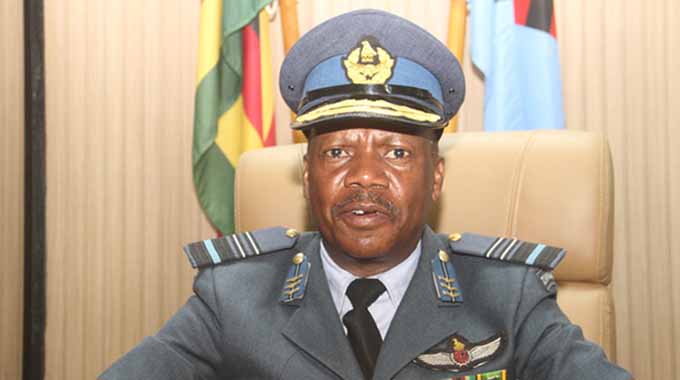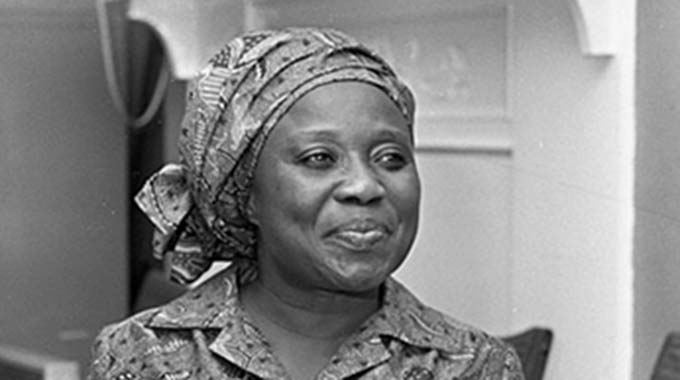Patriotism: AFZ’s guiding principle

THE INTERVIEW Tendai Mugabe
TM: Political developments in the past year ushered in a new dispensation in the country, which saw us witnessing leadership change in Government and also security organisations such as the Zimbabwe Defence Forces (ZDF) with you assuming command of the Air Force of Zimbabwe (AFZ). In the context of the new dispensation, could you briefly give us the highlights of your vision for the Air Force of Zimbabwe?
EM: The ushering in of the new dispensation has been a welcome development in the country. Be that as it may, my vision as Commander Air Force of Zimbabwe is to position the organisation as a highly professional and disciplined force through capacity-building initiatives for effective, efficient and timely employment of air power in response to Zimbabwe’s national security imperatives. This thrust will be guided and centred on patriotism, loyalty, human dignity, excellence and professionalism as envisaged in our core values as an organisation. For this to be attained, issues to do with workforce’s welfare, training, re-equipping, research and development, flight safety and infrastructure development have to be addressed for the organisation to realise the desired end state.
TM: As an integral arm of the Zimbabwe Defence Forces, the success of most of your operations hinge on seamless joint operations with the army. Could you explain how you managed to ensure the success of such operations?
EM: The Air force of Zimbabwe and the Zimbabwe National Army are natural partners in the conduct of combat operations on and over land.
As such, their day-to-day operations are intertwined, particularly in areas of service support. The most important teamwork occurs on the battlefield where our combat capabilities produce an increase in joint combat power that provides a decisive advantage over an adversary.
To that end, the air force and army carry out joint exercises in all phases of their training and staff development courses done at the Zimbabwe Staff College and the Zimbabwe National Defence University.
These exercises and courses guarantee the much-needed cohesion in operations or conduct of war.
TM: The world is evidently being driven by technological developments and this surely now affects the art of warfare. What is the Air Force of Zimbabwe doing to stay abreast with these advancements, especially in military equipment to ensure rapid response to any security threat in future?
EM: It is common knowledge that technology continues to play a big part in all facets of our lives and the Air Force of Zimbabwe has not been spared in this regard. It is, therefore, important to note that significant strides continue to be made in promoting Poly-Tech and University technical learning in a bid to keep our personnel abreast with the latest communications, engineering and aeronautical technological developments.
It is also imperative to note that the Air Force of Zimbabwe will remain seized with acquiring latest military hardware and software so that the skills that our personnel acquire do not lag behind.
TM: As the economic fortunes of the country improve, what are the major priorities of the Air Force of Zimbabwe?
EM: A booming economy will entail considerable financial resources to fund our operations.
In that regard, the Air Force of Zimbabwe will benefit from the improving economy by going on a capacity-building exercise which will include among other things, improving the condition of service of our personnel, aircraft acquisition/recovery, enhanced infrastructure redevelopments, quality training and exercises and recruitment to fill in the gaps in the establishment.
Let me, therefore, hasten to say, we remain committed to improving the conditions of service and welfare of our personnel so as to help retain the best talent.
TM: The Air Force of Zimbabwe has played a significant role locally, regionally and on the continent in areas of training and operations. How do you intend to maintain that?
EM: As you may know, Zimbabwe is a member of SADC and the African Union. Under those banners, the Air Force of Zimbabwe is one of the State organs that help the country to fulfil its mandated obligations and responsibilities in the community of nations through synergies that involve joint exercises meant to promote Inter-Operability in Disaster Management capabilities.
Among other things, the force is also involved in training of personnel from our SADC allies especially in engineering and flying courses.
We also continue to second some of our personnel to United Nations peacekeeping missions in a number of countries which include Sudan, Ivory Coast and others. I am glad to note that they have executed their duties diligently as expected thereby flying our flag higher.
TM: I understand that the Air Force of Zimbabwe is involved in charity work around the country, as evidenced by the number of projects or activities that are currently being undertaken. Can you enlighten us on some of the projects?
EM: The Air Force of Zimbabwe has created a legacy of philanthropy and selflessness as demonstrated by its deliberate attempts to reach out to disadvantaged members in our communities through the Commander Air Force of Zimbabwe Charity Fund. This Fund has partnered the corporate world that has provided invaluable support towards assisting the less privileged members of our society. I am glad to note that a number of projects which include the Murongwe Secondary School Project in Mashonaland Central, Gwelutshena in Nkayi, Matebeleland North and Negove Clinic in Mberengwa, the Midlands are at various stages of construction. In the near future we will also commence other projects in Binga, Chikombedzi and Tsholotsho.
TM: Going forward, how do you intend to safeguard and enhance the legacy of the Air Force of Zimbabwe?
EM: The Air Force of Zimbabwe has created a lasting legacy of resilience, subservience to political leadership, being a people’s air force through gallantry, professionalism, effective resources management, equity and fairness among other things.
From this background, the Air Force will continue to enhance its capabilities so as to effectively defend the air space of Zimbabwe.
On the civil side, the Air Force will also continue to reach out to the people of Zimbabwe and getting involved in the betterment of lives and the general development of our country








Comments